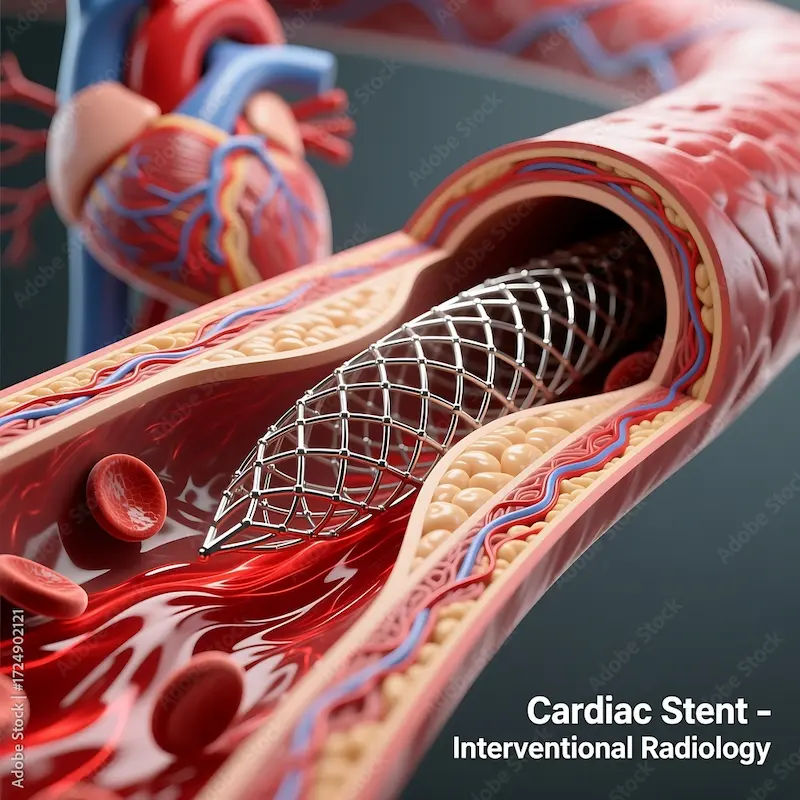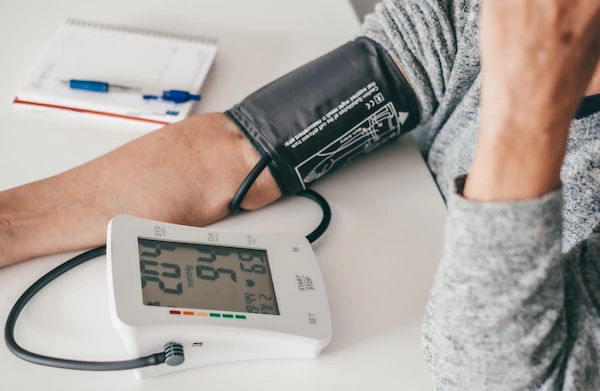- female
- 30 Years
- 22/01/2025
I'm really concerned about this weird heartbeat thing happening to me. Whenever I'm sitting, lying down, or trying to sleep, I can hear my heartbeat really strong. My pulse is usually between 60 and 90, and this has been going on for like 10 months now. I went through all these tests about 10 months ago: 5 ECGs, 3 Echoes, and 1 TMT, and they all came back normal. I'm not sure what to do about these palpitations. Could you give me some advice on how to deal with this?
Answered by 1 Apollo Doctors
Based on your symptoms and normal test results, you may be experiencing benign palpitations. To help manage palpitations, you can try using beta-blockers such as Metoprolol (25-50mg) once daily. Additionally, practicing relaxation techniques, maintaining a healthy lifestyle, and avoiding triggers like caffeine and stress can also help reduce palpitations. If your symptoms persist or worsen, further evaluation may be necessary.
Dr. Shubham Suggests...
Consult a Cardiologist
Answered 04/07/2025
0
0

More Cardiology Health Queries
View allI'm feeling concerned because my heart has been pumping really fast for a while before calming down to normal. When it speeds up, it feels like it's going to jump out of my chest. What could be causing this, and should I be worried?
It sounds like you may be experiencing episodes of palpitations. Palpitations are sensations of a rapid or irregular heartbeat. One common cause of palpitations is atrial fibrillation, where the heart beats irregularly and often rapidly. It is important to consult a doctor for proper evaluation and management. In the meantime, you can try taking a beta-blocker medication such as Metoprolol (brand name: Lopressor) to help slow down your heart rate. The usual starting dose for Metoprolol is 25-50 mg twice daily. However, please consult a doctor before starting any new medication.
Answered by 1 Apollo Doctors
I've been struggling with this issue for about two years now, and I'm really hoping for some insight. I'm a 27-year-old I.T. professional and this all started with sudden bouts of dizziness and sweating. I've gone through all the usual tests, like MRI and blood work, and the only thing that came up was a low B12 level at 83. Over time, I've begun feeling detached, and my doctor mentioned it might be anxiety. The problem hasnt gone away though, and now I sometimes experience fluttering, dizziness, and vomiting. It feels like I might faint, but I never actually do. I've had TMT and ECG tests twice, and both were normal. I worry it could be some kind of arrhythmia, but during these episodes, my heart rate seems stable with no major changes. It's confusing because these episodes don't seem linked to stress and only last a few seconds. I'm really anxious about this and just looking for a professional perspective on what's happening.
It sounds like you are experiencing symptoms of panic attacks, which can be very distressing. The dizziness, sweating, fluttering sensation, vomiting, and feeling like you might pass out are all common symptoms of panic attacks. Since your heart rate remains normal during these episodes and your cardiac tests (TMT, ECG) have come back normal, it is less likely to be related to arrhythmia. One possible treatment option for your symptoms could be to take an anti-anxiety medication such as **Xanax (Alprazolam)**. The usual starting dose for adults is 0.25 mg to 0.5 mg taken three times a day. However, it is important to consult with a doctor before starting any medication. In addition to medication, therapy such as cognitive-behavioral therapy (CBT) can also be very effective in managing panic attacks. It can help you understand and cope with the triggers of your anxiety. It is important to follow up with your doctor regularly to monitor your symptoms and response to treatment. If you continue to experience these episodes despite treatment, further evaluation may be needed.
Answered by 1 Apollo Doctors
I'm looking for some help understanding my ECG report. One of the doctors mentioned something called Prolonged QT syndrome, and I'm not exactly sure what that means. Could you give me some more details about it? I've also attached the medications I've been prescribed.
The Prolonged QT syndrome is a heart condition that can potentially cause fast, chaotic heartbeats, which can be life-threatening. It is diagnosed based on an electrocardiogram (ECG) that shows a prolonged QT interval, indicating a delay in the heart's electrical recharging system. This delay can lead to arrhythmias and fainting spells. For the treatment of Prolonged QT syndrome, medications like Beta-blockers are commonly prescribed to help regulate the heart rate and reduce the risk of arrhythmias. In your case, the medication prescribed is **Propranolol** at a dosage of 40mg twice daily. Propranolol is a beta-blocker that helps to stabilize the heart's electrical activity and prevent dangerous heart rhythms. It is important to take the medication as prescribed by your doctor and to follow up regularly to monitor your heart's condition. If you experience any concerning symptoms or side effects, be sure to contact your healthcare provider for further guidance.
Answered by 1 Apollo Doctors
Disclaimer: Answers on Apollo 247 are not intended to replace your doctor advice. Always seek help of a professional doctor in case of an medical emergency or ailment.





